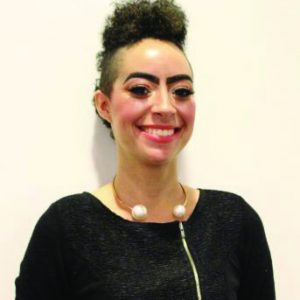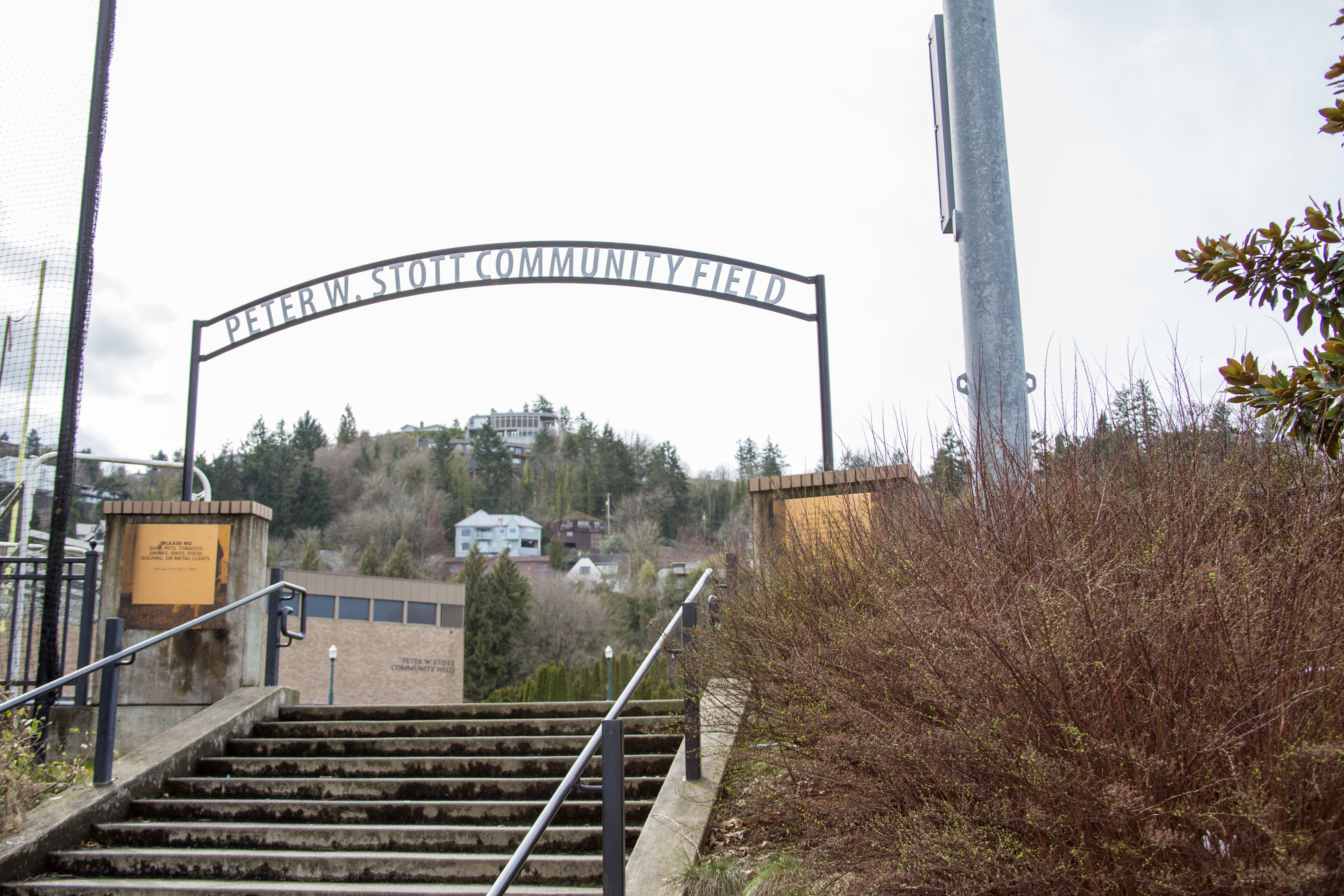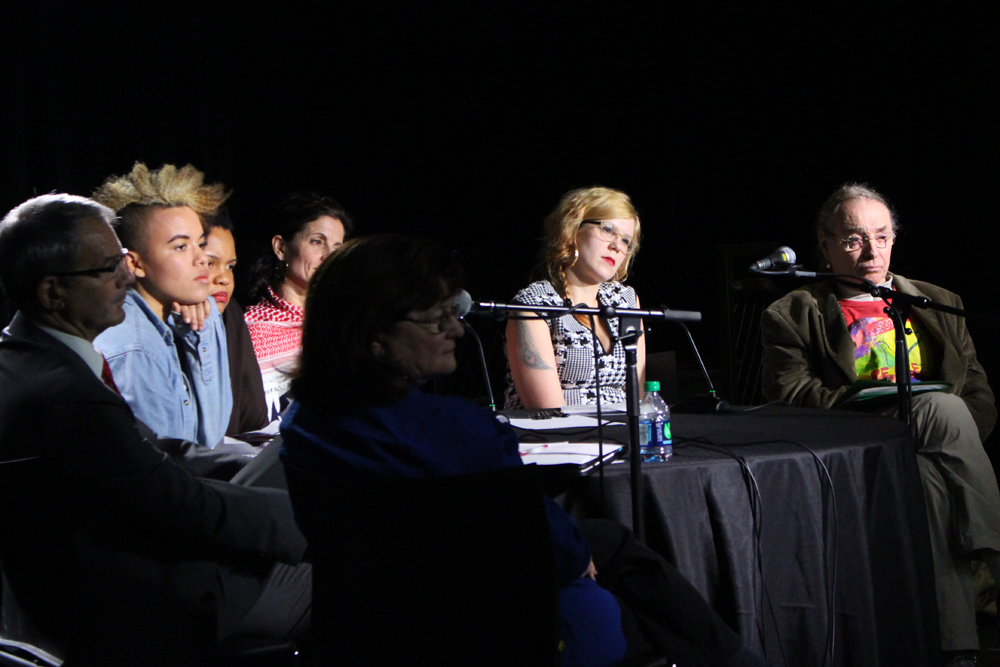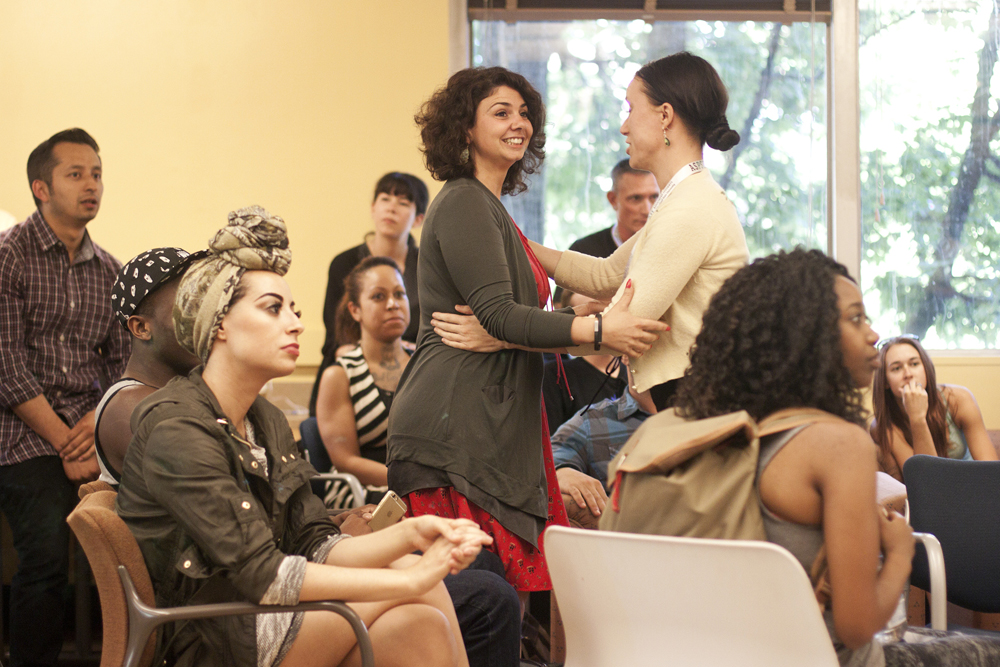An abrupt shift in leadership transpiring within a span of 24-and-a-half hours saw the resignation of both the president and vice president of the Portland State student government, Associated Students of PSU. President Liela Forbes and Vice President Kaitlyn Verret resigned from their positions within a day of each other, capping off a tumultuous administration that began with a four-vote margin and ended with a sigh of relief from both Forbes and Verret.
Forbes’ resignation arrived via email shortly before 5 p.m. on April 4 for reasons they called personal.
Calling their ability to work on a variety of issues, from “university investments and ethics, sexual assault policy, campus minimum wage,” to the process of selecting a new PSU president a genuine honor, Forbes’ letter described not only why they got involved, but why they felt others should get involved.
“Do not let yourself be seduced into complacency,” their letter said. “Challenge norms, challenge ideas, challenge the status quo, and challenge each other. Don’t be afraid to be radical. Don’t be afraid to push yourself and test your limits. Don’t be afraid to be kind. But most importantly, don’t be afraid to fight for what you believe in.”
Having a radical inclination is something that Forbes can proudly claim, and something that has brought them both support and scrutiny.
Throughout their administration they have been the subject of ongoing coverage by the Vanguard, some of which has been critical, while other coverage has detailed the difficulties they have faced going up against campus administration, as was seen with the contentious divestment debate.
Chaos and disorder
Immediately after Forbes’ resignation, the question of succession came to the fore.
Under Section VII of the ASPSU Constitution, “The vice president must assume all duties pertaining to the office of the ASPSU president if the president is unable to perform those duties.”
A meeting was held the following day for Verret—now interim president—to appoint two members to the Student Fee Committee and take action on Judicial Review Board items.
The meeting started inauspiciously with a struggle to gather enough senators and SFC members to trigger quorum, until 5:13 p.m. when a sitting of 13 senators was called to order. Shortly thereafter, a 14th arrived, seemingly just in time.
The SFC members were swiftly voted on and Interim President Verret moved on to what would turn out to be the final order of business: her resignation.
“As many of you know, [Forbes] has resigned,” Verret explained. “If you know our story, we have both had a pretty hard time, from campaigning and all the things that happened to that, to succeeding academically term to term.”
Noting stark disagreement with the Vanguard at times—citing the coverage in “Cronyism in Question” specifically—Verret was clear she wanted the process of replacing the executive to be “as democratic as it could be,” deferring to the process outlined in Section VII of the ASPSU Constitution.
In her farewell speech, Verret struck a defiant tone, recalling her and Forbes’ difficulties in dealing with obstacles at PSU.
Verret pointed to structural barriers but said there were no losses or regrets. She said improvements are needed and she wants to see leadership become “more accessible,” fair and “worthy of us.”
Of future student leaders, Verret said many “become leaders because they see disparities within their communities and see how they’re being underserved or not served at all.” Verret then added, “That seems to be a narrative when we’ve interviewed in the past year: to better their communities, better their lives. I say just keep going. The fight is hard, but it’s worth it. Keep going.”
Automatic
With Verret and Forbes both stepping aside, Section VII of the ASPSU Constitution lays the position of interim president on the shoulders of JRB Chief Justice Joshua Friedlein.
Although he did know before the meeting, “It was a surprise to me when I came back from spring break,” Friedlein said. “[Forbes and Verrets’] resignations were a surprise to me; I did not anticipate either of them doing that.”
Friedlein’s position as interim president is largely symbolic, and he stated that he would only be in the position until a replacement could be seated.
“If someone does nominate me, I will not accept. I have no desire to be president,” Friedlein replied. “I’m very content in the position I’m in, and also if I were to be elected president, the [JRB] would not have enough members to function for the rest of this term which is not good considering we’re in the middle of an election cycle.”
“But I have no desire to be president, so I will not accept,” Friedlein reiterated.
While the process seems complicated and controversial, it is largely part of the process of student government.
“I think [the resignation process] has been smooth, and there have not been any surprises, but it’s been a learning experience both for myself and for [Coordinator of Student Government Relations] Candace [Avalos],” Friedlein explained. “I believe because this is the first time to our knowledge this has happened under the constitution, just going through the process as its been laid out in all actuality is a little bit different than it looks in the constitution.”
“It’s been a bit of a learning curve, but I think it’s gone smoothly,” Friedlein added. “I’m hoping the meeting on Monday goes smoothly as well and that we can make a good transition to a new president before the elections.”
Avalos echoed Friedlein’s points.
“It just seems more high profile because they’re the president of the organization,” Avalos said. “The protocol is a little bit different, especially considering the president is responsible for filling vacancies, so when the president isn’t there the process for filling that vacancy is different.”
“I think that shakes up the organization a little more, but I mean, I guess as far as the big picture it’s pretty typical to have students make the decision to be or not be involved in things based on their personal lives,” Avalos added.
Let’s work
With elections coming soon, there is no way for a special election to be called in time due to provisions under Section VII of the ASPSU Constitution. However, due to the swift work of the ASPSU Senate, it looks like there won’t be any interruption in the near term, and students can focus on the election.
As with any election, however, the matter ultimately rests with the students.
ASPSU Legislative Director Phoenix Singer was quick to point out that low participation in recent years has plagued ASPSU elections.
“Student involvement on campus has been heavily declining,” Singer said. “Less than 1 percent of people that are students are doing all of this, and less than 5 percent of them are voting.” Singer added that in 2012 around 10 percent of students voted.
If what Forbes and Verret said about being involved is to be heard,` students should take the need to be involved seriously.
The first step toward a more involved student body is to get engaged and get familiar with your candidates.
Polls for the ASPSU 2017-18 elections open April 17. Candidates for President and Vice President, Senators and Student Fee Committee members will participate in a series of debates this week.









These people are degenerate hate mongers. it was very sad that they ever had any position of power at PSU. People who are intolerant of other’s views should never hold power. There are a number of examples of these two commiting acts of degenerecy online I suggest you look them up. One instance almost constitutes as assault, but I’ll let you be the judge.